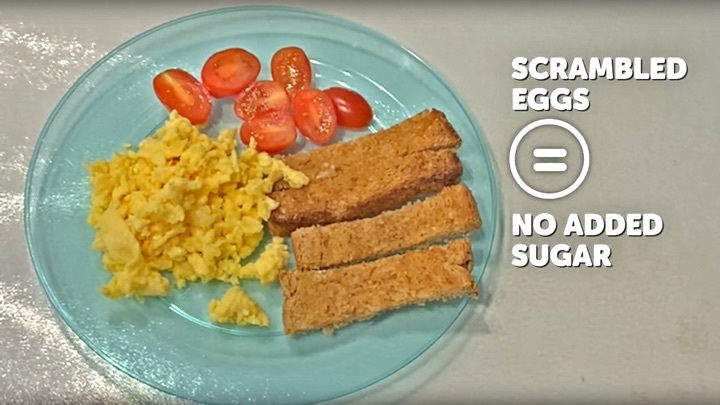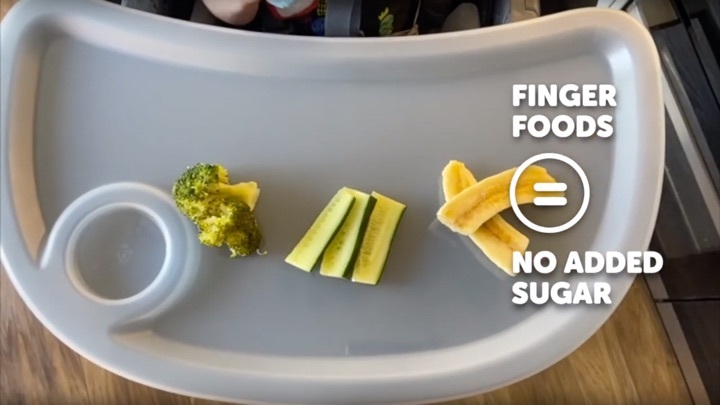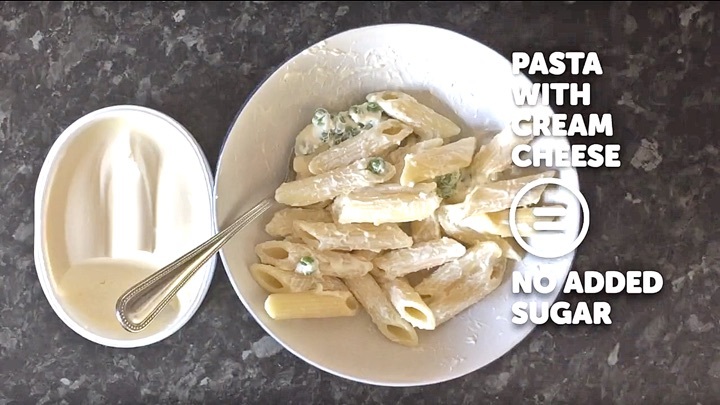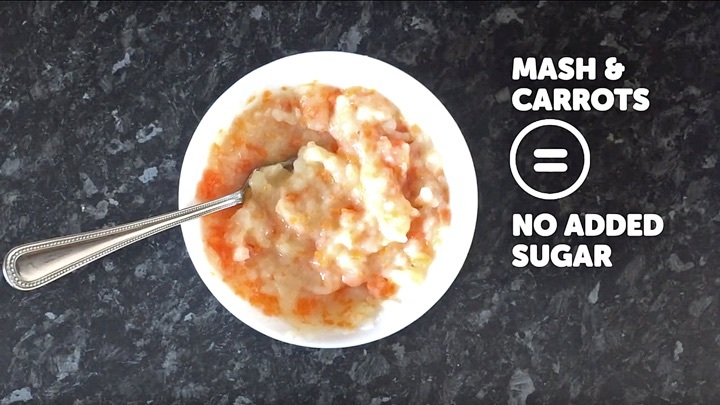Sugar is one of the worst offenders for rotten teeth
Eating low sugar foods during pregnancy and when breast-feeding, and introducing these foods during weaning, can make children less likely to develop a sweet tooth and prefer a high sugar diet as they get older. Here are some useful tips to help you make healthier choices at every stage of your child’s development to give them the best start.
How much is too much?
There is no guideline limit of added sugar for children under four years of age. Instead, it is recommended they avoid all sweetened foods or drinks.
You can start by offering healthy foods when weaning your child. Include vegetables that aren't so sweet, such as broccoli, cauliflower and spinach – this will help your baby get used to a range of flavours (rather than just the sweeter ones like carrots and sweet potato). This can help prevent them being fussy eaters as they grow up.
Remember, babies don’t need sugar added to their food and sugar can cause tooth decay. Examples of low sugar food and drink for this age group are fresh fruit, rice cakes, unsalted crackers, cheese, water and whole milk (after 12 months of age).
What are the risks of too much sugar?
Eating too much sugar is not only linked to childhood obesity, but to a worrying level of tooth decay. In Sheffield in 2017/2018, almost 2,000 children suffered the pain and trauma of being hospitalised to have their teeth removed.
Sugar fact: 1 in 3 of Sheffield’s 5-year-olds have tooth decay
Reducing the risks during weaning
Whether you choose baby-led weaning (where the baby feeds themselves) or spoon-fed (where you feed them), you should try to keep sugary food and drink to a minimum by:
- Pureeing your own fruit and vegetables instead of buying ready-made
- Buying natural yoghurt instead of sugar-sweetened yoghurts
- Starting to clean your baby’s teeth as soon as they appear
- Only putting formula, breast milk or water in your baby’s bottle
- Offering healthy finger foods such as unsalted/unsweetened rice cakes, pitta bread, cubes of cheese or cooked vegetable pieces, such as carrots or cauliflower
- Don’t dip your baby’s dummy in sweet drinks or sweet food like honey because this can cause tooth decay
The importance of baby teeth
Even though they will eventually fall out, looking after your child’s baby teeth is incredibly important. They are the foundations of healthy permanent teeth and the condition of your little one’s gums is also important in forming their facial bones and muscles ready for speech. Your toddler doesn’t need sweet snacks. You can help them by supporting them to make healthier choices. Be positive about low-sugar foods and how good they taste. Little ones pick up everything from you, so set a good example and help them develop healthy habits from the start. Here are some simple things you can do to get them on the right track:
- Avoid processed foods including food in pouches and boxes
- Offer fresh, cooked or pureed vegetables, such as carrots, sweet potato and peas
- The naturally occurring sugar in dried fruit, such as raisins, dates and apricots, can also contribute to tooth decay. Only give dried fruit, like raisins, with meals to reduce tooth decay
- Give milk or water to drink (only give cow’s milk when your baby is over 12 months old)
- Visit the dentist regularly – at least every 6 months - and from as soon as your baby’s first tooth has appeared
- Brush your child’s teeth at least twice a day using a fluoride toothpaste of at least 1000ppm
- Supervise children under the age of 7 when brushing their teeth to make sure they reach all the tooth surfaces
The health benefits
Showing your little ones how good fresh, healthy, low-sugar foods can taste will set them on the right track. The choices you make now will help to protect their teeth and get them ready for a healthier future.
Watch our weaning videos
Pouches and jars of baby food are quick and convenient but often contain hidden sugar as well as additives and preservatives.
Here are some really simple recipes to help you make your own weaning dishes at home. They’re fresh, tasty and nutritious to give your baby the best start in life.
Weaning recipe: Scrambled eggs
Play videoWeaning recipe: Finger food
Play videoWeaning recipe: Pasta with cream cheese
Play videoWeaning Recipe: Mashed potatoes and carrot
Play video



